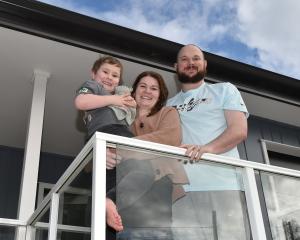The study's principal investigator is Dr David McBride, a senior lecturer in the Otago preventive and social medicine department, and the project will be managed by senior research fellow Dr Kirsten Lovelock, also of the department.
The two Dunedin researchers will be joined by co-investigators Dr Daniel Shepherd and Prof Rex Billington, both of Auckland University of Technology (AUT), in the project, which this week gained joint funding of $120,000 from the Health Research Council and the Canterbury Medical Research Foundation.
This study will be the first of its kind in New Zealand and the largest of its kind to be undertaken internationally, the researchers said.
The research was unusual internationally in that it would consider broader medical outcomes, as well as checking psychological effects such as depression and post-traumatic stress disorder.
Dr Lovelock noted yesterday that studies of emergency workers involved in dealing with the World Trade Centre terrorist attack in September 2001 had shown that some first responders had only begun to experience adverse psychological effects two years or more later.
Earthquakes were not a single event, and aftershocks could go on for years.
The role of first responders, including police and St John ambulance staff, in mitigating the effects of earthquakes was vital, the researchers said.
And the effect of earthquake disaster work on the various groups of frontline workers was "an important health and welfare issue", they said.
"Understanding the demands placed on these workers, their coping strategies, and what factors help or impede their roles is vital for informed policy and practice codes," Dr Lovelock said.
Such greater understanding would enhance the ability of the health system "to address the health and wellbeing of these individuals and the communities to which they belong and serve", she said.
The researchers would work with 550 earthquake first-response staff, including military personnel, utility workers, construction and demolition workers, Maori wardens and Red Cross, church members and schoolteachers.
Those first responders would be surveyed three times at six-monthly intervals, starting next month, and parallel "control" surveys of emergency first responders would also be undertaken in Hamilton.
In one of four other earthquake-related projects also funded by the HRC and the research foundation, Dr Cameron Lacey, of Otago University's Christchurch campus, gained a $104,918 grant to explore the links between stress, genes and certain heart problems in a group of 30 heart patients.
Other grants went to Prof Michael Ardagh, of Canterbury District Health Board ($119,575); Dr Kathy Peri, Auckland University ($105,700); and Louise Thornley, of Wellington ($120,000).












